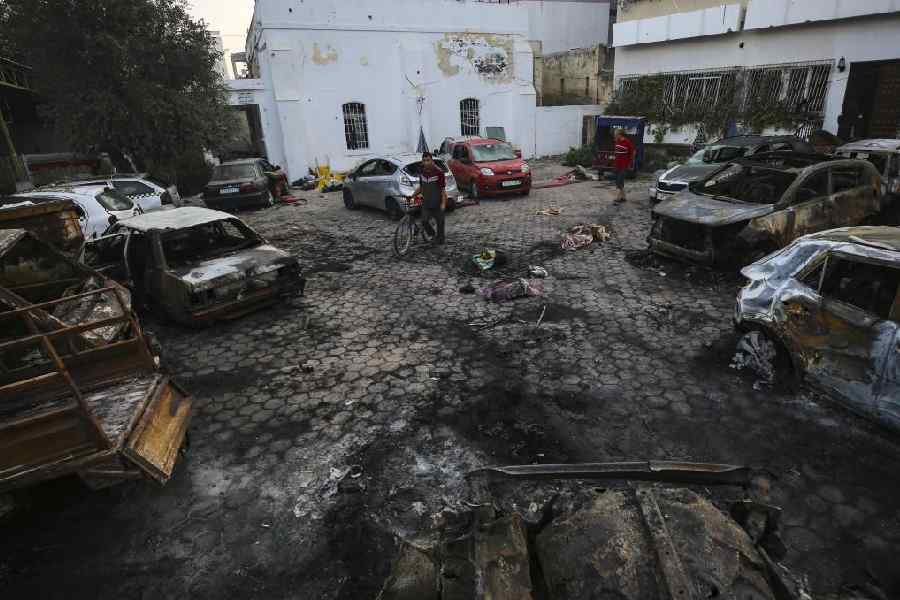
Blood on hands: Editorial on the importance of protecting the lives of civilians during war
Conflicts are supposed to adhere to specific codes of conduct. Protecting the lives of civilians as well as doctors and humanitarian aid workers should ideally be a part of this code
 |
| War crimes such as these are usually met by international outrage but there is little by way of penalty or accountability.: Sourced by the Telegraph |
TT Editorial Board, 24.10.23 : One of the collateral damages of conflict is civilian casualty. It can be both steep and brutal. The ongoing conflict between Israel and Hamas is no exception. Over the years, the Israel-Palestine conflagration has extracted incalculable losses in terms of lives and livelihood.
But what is disheartening is that modern conflicts, be it in Gaza or that between Russia and Ukraine, no longer honour some of the internationally acknowledged protocols of engagement. For instance, Israel and Russia have both been accused of killing civilians and destroying civilian institutions that have immunity from adversarial conduct.
The alleged Israeli airstrike on the Al-Ahli Baptist Hospital, which left unmatched scenes of death and destruction and claimed more than 500 lives, is a case in point.
Elsewhere, in Europe, Ukraine has also alleged that Russia has specifically targeted civilians: Moscow’s assault on a maternity hospital in Mariupol and the bombing of other health facilities in the ongoing conflict have been held up as examples. The malaise, evidently, is global. The United States of America, which claims to be the protector of global conventions, has been a party to this transgression: the 2015 airstrike on a trauma care centre in Afghanistan is but one example of the US’s complicity.
These instances — there are many others — are suggestive of a basic erosion. There can be no moral justification for war. But even then, conflicts are supposed to adhere to specific codes of conduct.
Protecting the lives of civilians as well as doctors and humanitarian aid workers should ideally be a part of this code. But the mounting body bags of not just civilians but also doctors, aid workers and journalists caught in the crossfire are a testament to the continuing failure — erasure — of morality on the global theatres of conflict.
What makes these losses all the more ironic is that statutes exist to prevent them. The International Humanitarian Law based on the 1949 Geneva Convention postulates a set of principles to limit the consequences of armed conflicts and ensure the protection of non-combatants, such as civilians, wounded and sick soldiers, health and humanitarian workers and prisoners.
But combatants seldom take heed of these words. War crimes such as these are usually met by international outrage but there is little by way of penalty or accountability. Perhaps it is time for global bodies to recalibrate their responses to the crisis and come up with a new framework that would make it difficult for such transgressions to take place.

0 Response to " Blood on hands: Editorial on the importance of protecting the lives of civilians during war"
Post a Comment
Disclaimer Note:
The views expressed in the articles published here are solely those of the author and do not necessarily reflect the official policy, position, or perspective of Kalimpong News or KalimNews. Kalimpong News and KalimNews disclaim all liability for the published or posted articles, news, and information and assume no responsibility for the accuracy or validity of the content.
Kalimpong News is a non-profit online news platform managed by KalimNews and operated under the Kalimpong Press Club.
Comment Policy:
We encourage respectful and constructive discussions. Please ensure decency while commenting and register with your email ID to participate.
Note: only a member of this blog may post a comment.